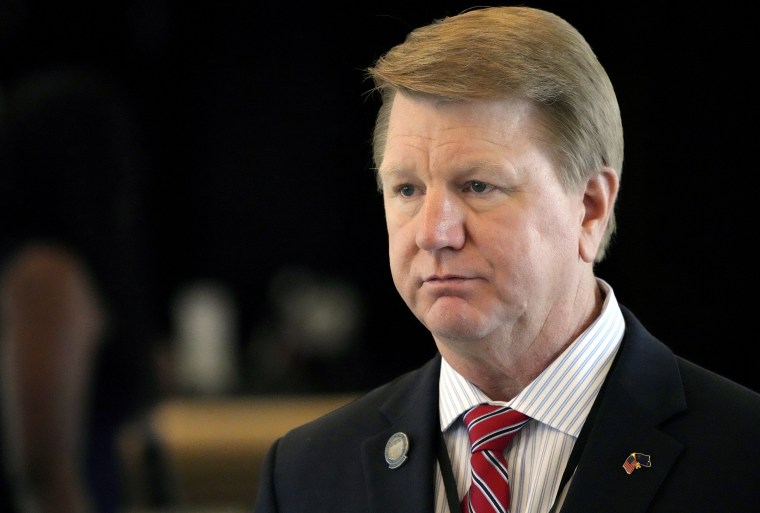Exactly one month before Election Day, Republican Jim Marchant stood alongside Donald Trump at a rally in Nevada, boasting about a “coalition of secretary of state candidates,” who apparently intend to “fix the whole country.”
This was not encouraging. As we discussed soon after, Marchant has been unreserved when pushing ridiculous ideas — and not just about Trump’s 2020 race. The Nevada Republican, who’s been accused of having QAnon ties, has also told Nevadans, “Your vote hasn’t counted for decades. You haven’t elected anybody. The people that are in office have been selected.”
Marchant has also insisted that prominent Democratic lawmakers — House Speaker Nancy Pelosi, Senate Majority Leader Chuck Schumer, House Intelligence Committee Chairman Adam Schiff, et al. — shouldn’t be seen as having won legitimate elections, either, despite their landslide victories.
So, how’d his “coalition” do? As NPR reported, Marchant’s extremist ally in Michigan fared poorly.
Democrat Jocelyn Benson, who faced death threats after overseeing the 2020 election, has been reelected secretary of state of Michigan, according to a race call by The Associated Press. Benson defeated Republican Kristina Karamo, a far-right candidate who has spread a number of baseless conspiracies about elections and other things.
With just about all of the votes tallied, Karamo lost by about 14 points. In Minnesota, Republican Kim Crockett, who also echoed Trump’s lies, also lost her bid for secretary of state by nearly 10 points. The same goes for New Mexico’s Audrey Mendonca-Trujillo, who also lost by double digits.
Pennsylvania’s Doug Mastriano ran for governor, not secretary of state, but in the Keystone State, governors appoint secretaries of state, and in this case, the right-wing nominee vowed to name a likeminded ally to the office. Mastriano, of course, lost his statewide bid badly.
For democracy advocates, that’s the good news. The bad news is, there were other contests.
In Indiana, for example, Diego Morales, a former Mike Pence aide, publicly doubted the legitimacy of the 2020 presidential election but was elected secretary of state anyway. (Morales was not a formal member of the "coalition" Marchant referenced.)
In Arizona, Republican Mark Finchem positioned himself as one of the cycle’s most unhinged radicals, and as of this moment, his secretary of state race hasn’t been called. He is, however, currently trailing his Democratic opponent by roughly five points, though there are still a lot of ballots to be counted.
As for Marchant’s candidacy in the Silver State, he currently has a narrow lead over his Democratic rival, though we may not get the results of the race until the weekend.
Circling back to our earlier coverage, I remain mindful of the fact that for many voters, secretary of state — at the state level, not the cabinet secretary who leads the U.S. State Department — is probably a fairly obscure office. These officials tend to work behind the scenes on unglamorous tasks such as election administration, and few reach the household-name level.
But in the wake of Jan. 6, the Republican Party’s brazen lies and conspiracy theories, and Trump’s fixation on installing election-denying allies in key positions, secretaries of state — and this year’s campaigns to elect secretaries of state — have taken on extraordinary importance.
In practical terms, we’re talking about officials who could take radical and undemocratic steps before Election Day — Marchant has said he intends to eliminate early voting, voting by mail, and all electronic voting machines — and then make matters worse after Election Day by refusing to certify election results they don’t like, including vote tallies in the 2024 presidential election.
There’s no shortage of results worth watching in the coming days, but these belong near the top of the list.

